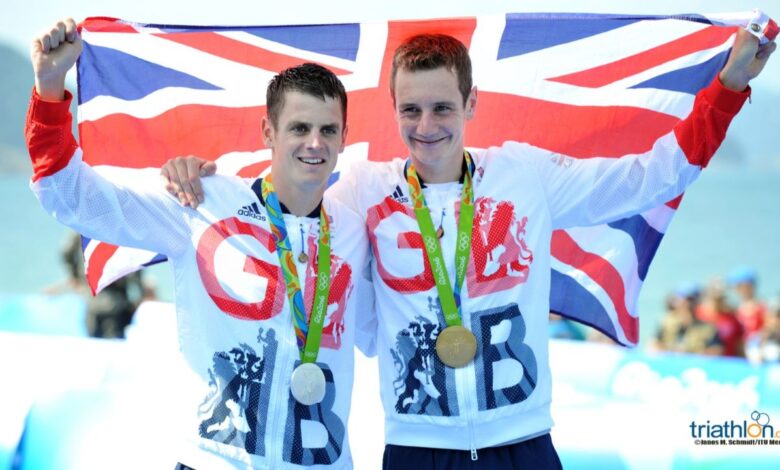Should Britain’s Olympic stars get paid for medal success? Triathlon legend Alistair Brownlee gives his verdict

Two-time Olympic triathlon gold medallist Alistair Brownlee has come out in support of prize money being given to successful British athletes at future Games.
The champion at London 2012 and Rio 2016, Yorkshire-born Brownlee is one of the most successful Olympic triathletes of all time and, along with his brother Jonny, he became the face of the sport in Britain across the course of his glittering 18-year-career.
Talking to the Business of Sport podcast (listen to the full version at the foot of this article), the now-retired Brownlee explained that he believed introducing some prize money for British medallists might be the way forward, and discussed how professional triathletes are able to fund themselves outside of the Olympic limelight.
“Some amount of cash” needed
Whilst British athletes don’t receive any prize money for finishing on the podium at Olympic Games, those from other countries such as the United States can receive huge rewards.
“Different countries have different ways of paying for medals,” Brownlee explained.
“Singapore is the one that pays a million dollars.
“[Great Britain] pays nothing. I don’t know the rights and wrongs of it, you hear some countries do things like pensions for life or various other things like free hotels for life.
“I think [the solution] is giving someone some amount of cash to do what they want to do with it.”

However Brownlee was keen to point out that sports funding in Britain often comes prior to success, rather than for rewarding medals.
“In the UK, our public money tends to go towards supporting athletes before the case. National Lottery funding pays for coaching, facilities, medical support, all those things. Other countries tend to do it the other way around.
The Economics of Triathlon
Beyond the Olympics, Brownlee discussed the economics of being a professional triathlete and explained the means through which the majority of professionals earn their living.
“Triathlon is definitely a niche sport, and the big tension comes once every four years around the Olympics,” he said.
“Your revenue streams as a professional triathlete comes from National Lottery funding if you’re on the Olympics side of the sport, then there’s commercial sponsors, prize money and appearance fees.
“Very quickly if you’re on National Lottery funding and you’re successful you’ll get capped out of that [at around £50,000] if you’re earning from other places.
“You can get endemic sponsors, and in triathlon you’re quite lucky because you can be sponsored by lots of businesses. There’s bikes, wetsuits, nutrition, helmets and eyewear.
“To have a big corporate sponsor [in triathlon] is kind of unheard of. In the build-up to London, Jonny and me got an agreement with BT which was just a completely different scale and very exciting at the time.
“But when you start, you’ve got no idea where that income is coming from. The National Lottery kind of gives you that bridge to get there.”
Do pro triathletes make a good living?
Moving on from commercial sponsorship, Brownlee revealed the biggest prize money haul in his career.
“At one point, in the Olympic distance world, I was winning all the races and the series. Triathlon is in quite a good place at the moment professionally as there’s quite a number of independent series, all paying prize money per race and an overall pot.
“I don’t know [the biggest prize] for one race, but for the overall series when I was winning them it was maybe $150,000.”
But as a big name in British sport and a legend of triathlon, Brownlee was hardly the typical professional athlete – so, what is the potential to make a living as a ‘middling’ competitor?
“At any one time, I’d estimate there are probably 40 men and 40 women maximum who are making a good to standard living – over £100k, maybe less – in the world out of triathlon.
“How many of those are also helped by public money? Probably quire a lot of them. It’s definitely not a high earning sport.”



